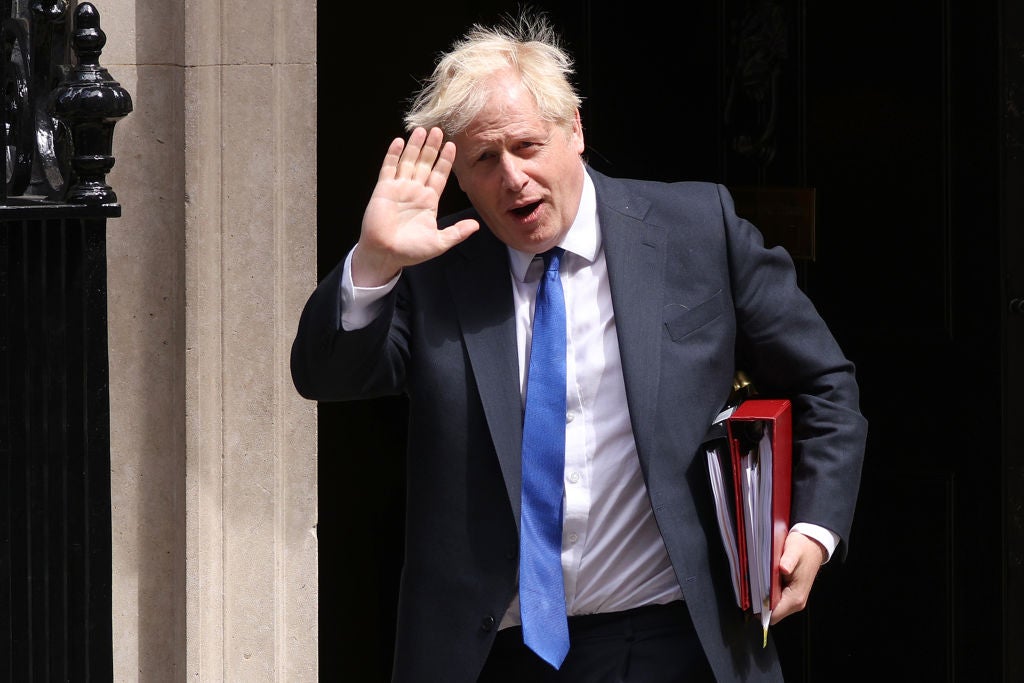It is said that leaders become obsessed with legacy when the curtain begins to fall on their time in power – but leaders don’t write their own history.
Although Tony Blair may want to be remembered for public sector reform, peace in Northern Ireland and a reduction in child poverty, any biography of the man will be dominated by the catastrophic consequences of his decision to support the US-led invasion of Iraq.
Circumstances, luck and bad judgement are often as much the author of legacy, if not more, than skill, intelligence or bravery.
So, what will Boris Johnson, a UK Prime Minister defenestrated by his own MPs, be most remembered for?
Johnson would hope the pillars of his legacy are his oft-repeated slogans of ‘getting Brexit done’ and ‘getting the country through Covid’. History is unlikely to be so kind.
He was a leader who promised to re-establish the UK on the global stage, while delivering prosperity to regions of the country economically left behind.

US Tariffs are shifting - will you react or anticipate?
Don’t let policy changes catch you off guard. Stay proactive with real-time data and expert analysis.
By GlobalDataJust under three years on from coming to power, he has been kicked out of office with a mandate unfulfilled and a country diminished by his leadership.
Johnson saved until the last moments of his premiership his greatest insult to the country he was elected to lead: a desperate scorched earth policy to remain in power. His refusal to resign in the face of a mass revolt of his own ministers expanded the moral vacuum at his core to encompass and suffocate the institutions of state.
Boris was bad for business
The UK can proudly boast a reputation for strong inward investment and being one of the most desirable countries on the planet to do business. Yet despite all his boosterism, UK investment performance has gone backwards under Johnson’s leadership.
While the UK managed a small increase in inward FDI in 2021 as global investment recovered from the injuries of Covid, the country’s FDI performance has lagged behind all other countries in the G7 since Johnson came to power in 2019.
Johnson has damaged the reputation of UK plc, and the effects of this will be felt long after he is gone. Investors crave reliability and predictability. They hate partners they cannot trust. Johnson’s leadership has not only eroded the trust in him but also trust in the UK.
During each scandal that has unfolded around him, Johnson and his backers have relied on distortions, distractions and downright lies to cover up his misdeeds. Central to his legacy will be a reputation for dishonesty, whether it was printing lies on the side of a bus, lying to unsuccessfully protect friends like Chris Pincher or Owen Paterson, or the increasingly desperate denials of his knowledge of lockdown parties in Downing Street.
On the international stage, he has been happy to discredit the UK by threatening to tear up the Northern Ireland Protocol he won an election by promising to enact. This seeming indifference to international law has threatened to recast the UK as an international pariah.
Boris's broken promises
Johnson's leadership was mocked abroad and ineffective at home. His domestic agenda promised a green industrial revolution but has left the UK as the sick man of the G20: only Russia is expected to have lower growth in 2023.
Johnson loved to make promises to the UK electorate but was incapable of keeping them. His central domestic project was to level up the UK, reducing economic inequality between London and the rest of the country. Yet research suggests that by the government’s own metrics, most parts of the UK have fallen further behind London since this policy was launched.
More recently Johnson has promised greater energy security for the UK, with wild promises of building one new nuclear power station every year. The hastily brainstormed ideas in this strategy did not come with firm funding commitments, and his government had little idea of how to tackle a growing cost-of-living crisis.
Long after 'levelling up' is forgotten as a political slogan, the legacy of Johnson’s most significant 'achievement' will continue to cast a shadow over the UK. The campaign to leave the EU was given impetus by his decision to back it. He has wrapped himself in Brexit ever since, first as a general election strategy and then as proof of his potency.
Yet Brexit, or at least the form of Brexit he has pursued, has been a disaster for the UK economy. Two years on from Brexit, UK growth is lagging behind EU members states, exports have fallen by 46%, and foreign direct investment flows remain far lower than they were in 2016.
Two years on from leaving the EU, UK manufacturers are still trying to cope with the additional costs and bureaucracy it has delivered.
A country diminished
Where does all this leave the UK? Seemingly on the verge of a recession, with trust in politics in the gutter, and political institutions that have been pushed to the point of destruction.
Johnson's grubby attempts to cling onto power and ignore political reality, like a toddler refusing to relinquish another child's toy, are fitting for a man who seemingly cares little for anything other than himself.
Luckily for the UK, the damage Johnson has inflicted will not be permanent. It remains a place where investors and companies want to be, and it still wields soft power that carries considerable global weight.
However, the immediate future for the country has been made more difficult by Johnson’s leadership. That will be his legacy. Well, that and all the lies.
This column originally appeared on Just Drinks sister site Investment Monitor.






